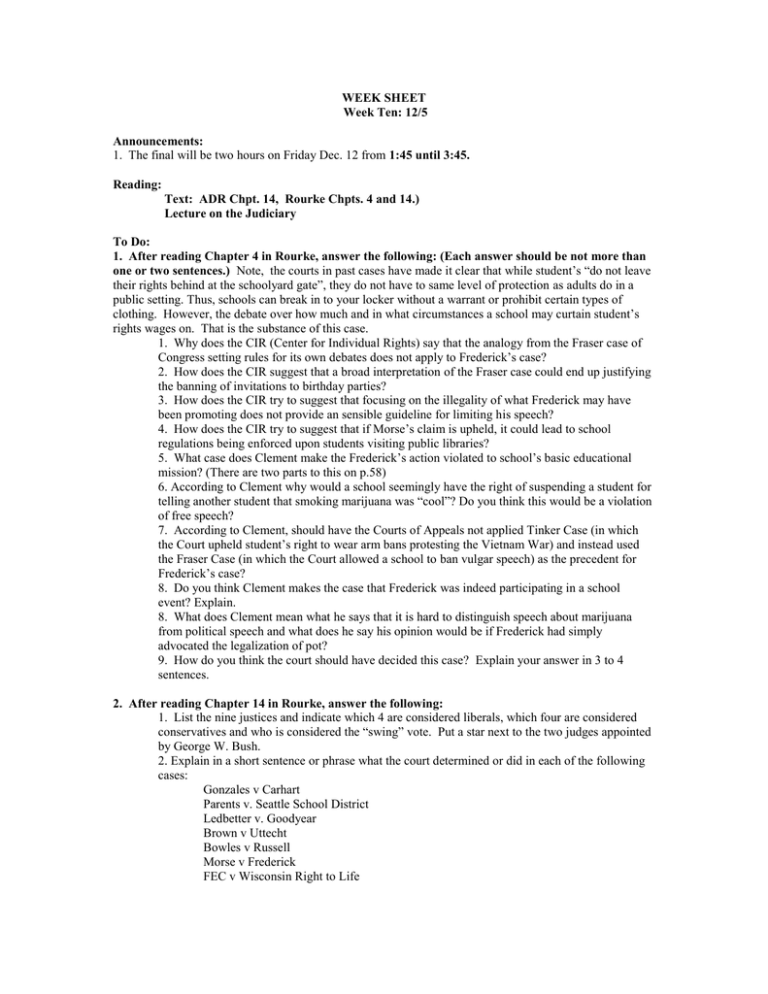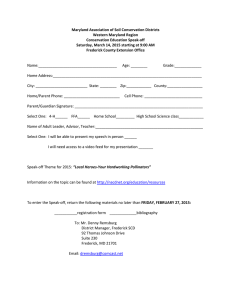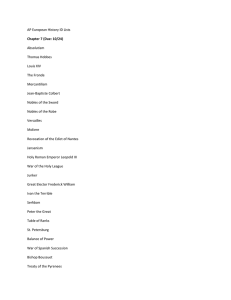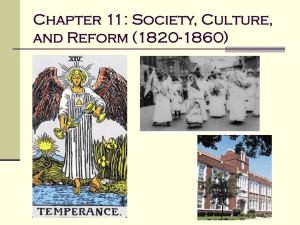Week Sheet 10
advertisement

WEEK SHEET Week Ten: 12/5 Announcements: 1. The final will be two hours on Friday Dec. 12 from 1:45 until 3:45. Reading: Text: ADR Chpt. 14, Rourke Chpts. 4 and 14.) Lecture on the Judiciary To Do: 1. After reading Chapter 4 in Rourke, answer the following: (Each answer should be not more than one or two sentences.) Note, the courts in past cases have made it clear that while student’s “do not leave their rights behind at the schoolyard gate”, they do not have to same level of protection as adults do in a public setting. Thus, schools can break in to your locker without a warrant or prohibit certain types of clothing. However, the debate over how much and in what circumstances a school may curtain student’s rights wages on. That is the substance of this case. 1. Why does the CIR (Center for Individual Rights) say that the analogy from the Fraser case of Congress setting rules for its own debates does not apply to Frederick’s case? 2. How does the CIR suggest that a broad interpretation of the Fraser case could end up justifying the banning of invitations to birthday parties? 3. How does the CIR try to suggest that focusing on the illegality of what Frederick may have been promoting does not provide an sensible guideline for limiting his speech? 4. How does the CIR try to suggest that if Morse’s claim is upheld, it could lead to school regulations being enforced upon students visiting public libraries? 5. What case does Clement make the Frederick’s action violated to school’s basic educational mission? (There are two parts to this on p.58) 6. According to Clement why would a school seemingly have the right of suspending a student for telling another student that smoking marijuana was “cool”? Do you think this would be a violation of free speech? 7. According to Clement, should have the Courts of Appeals not applied Tinker Case (in which the Court upheld student’s right to wear arm bans protesting the Vietnam War) and instead used the Fraser Case (in which the Court allowed a school to ban vulgar speech) as the precedent for Frederick’s case? 8. Do you think Clement makes the case that Frederick was indeed participating in a school event? Explain. 8. What does Clement mean what he says that it is hard to distinguish speech about marijuana from political speech and what does he say his opinion would be if Frederick had simply advocated the legalization of pot? 9. How do you think the court should have decided this case? Explain your answer in 3 to 4 sentences. 2. After reading Chapter 14 in Rourke, answer the following: 1. List the nine justices and indicate which 4 are considered liberals, which four are considered conservatives and who is considered the “swing” vote. Put a star next to the two judges appointed by George W. Bush. 2. Explain in a short sentence or phrase what the court determined or did in each of the following cases: Gonzales v Carhart Parents v. Seattle School District Ledbetter v. Goodyear Brown v Uttecht Bowles v Russell Morse v Frederick FEC v Wisconsin Right to Life 3. What does Lincoln say about the role of the “liberal” justices in a series of pro-business decisions? (Anwer in a sentence or two.) 4. What does it say about the Court and American democracy that court decisions on controversial issues are dependent on the ideologies of nine unelected justices who serve for life? (Answer in a few sentences.) To Think About: 1. Explain what is meant by judicial review, original intent and judicial activism, provide a couple of examples of each and explain why each is controversial. 2. Explain how and why the parties have had such bitter fights over judicial nominations in recent decades. How do liberals and conservatives differ both in how they view the judicial process and what they would like the courts to say and do. 3. Discuss the historical impact of the Supreme Court in the areas of Property Rights, the government’s role in the economy, and individual liberties and rights.


